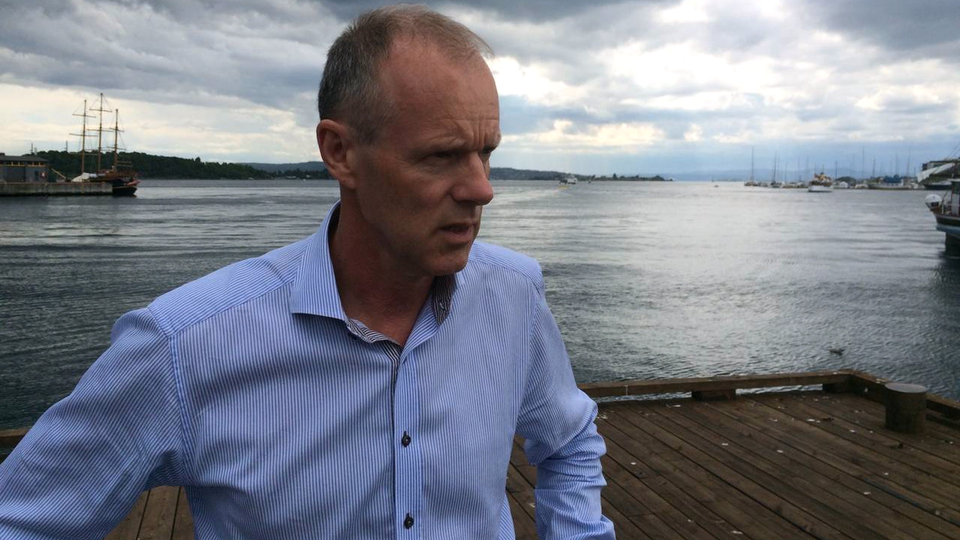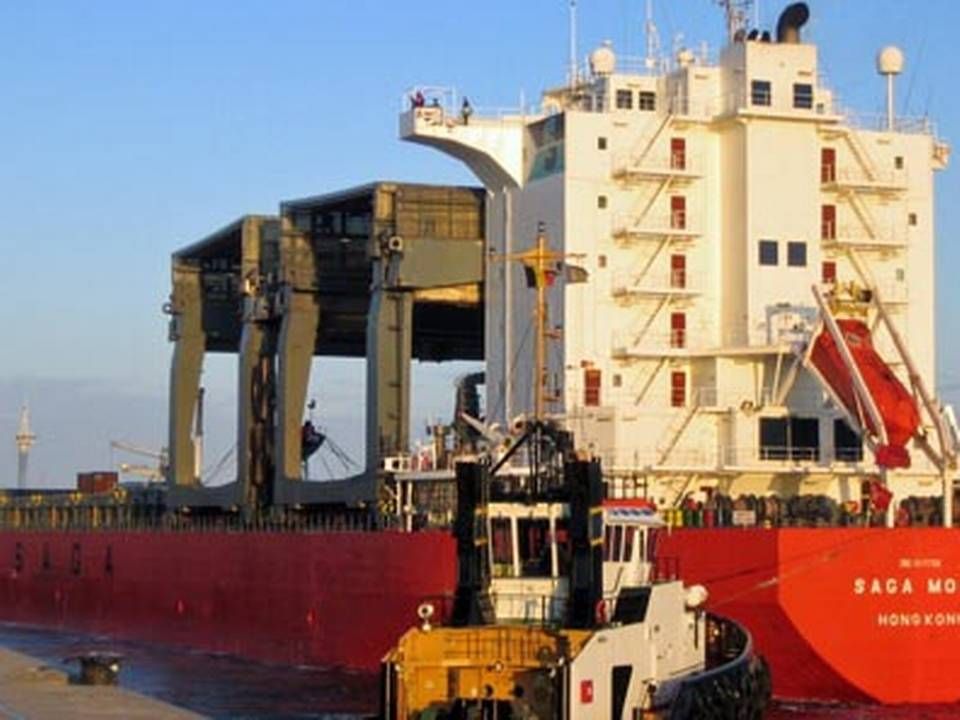Norwegian shipowners want Danish net wage scheme

OSLO:
There could be major consequences for Norwegian shipping if several of the framework conditions for the Norwegian maritime cluster are not changed in relation to the Norwegian growth plan for the industry. Specifically, the Norwegian Shipowners' Association fears that several ships will be registered under foreign flags unless something happens, CEO of the shipowners' association Sturla Henriksen tells ShippingWatch.
A quick glance at the Norwegian carriers and offshore companies shows that several are already registered abroad in, for instance, Bermuda - this goes for many of shipping magnate John Fredriksen's companies, including Frontline, Golden Ocean and Seadrill, while the family-owned carrier Stolt-Nielsen is also registered here.
"This is a consequence of the fact that NIS (the Norwegian International Ship Register) does not have access to Norwegian areas. We need to change this. If they don't change the framework conditions for NIS and the net wage scheme for seafarers, we believe that the fleet under Norwegian control will keep growing, but that the growth will happen under foreign flags and foreign crewing solutions. And over time this will weaken Norway as a maritime nation," says Sturla Henriksen.
Three options
Today the Norwegian shipowners - like the Danish - have three options:
- The Norwegian Ship Register (NOR): Here the ships are registered under Norwegian flag and the crew must work under Norwegian conditions.
- Norwegian International Ship Register (NIS): Here the ships are still under Norwegian flag, but like the Danish International Ship Register (DIS) seafarers from foreign countries can be employed on wage agreements from their native countries, thus not under Norwegian conditions. Ships in this register are not allowed to operate in adjacent waters.
- Out-flagging: Placing the ships under a different register, with DIS being one alternative.
The attractive part here, according to Sturla Henriksen, is that the carriers are completely free to choose how to combine their crew and have full freedom to chose where to sail.
"With NIS you can't enter the Norwegian Continental Shelf, so you have to join the normal register, which is costly in terms of seafarers, or you have to leave the register completely," says Sturla Henriksen.
As such, one of the goals for the Norwegian Shipowners' Association is to push new framework conditions through when Norway's conservative government will this year decide on a growth plan for the industry, to be launched in the spring of 2015.
Norwegian shipping companies growing on the stock exchange
"NIS is not as competitive as the Danish DIS. In Denmark there's a net wage scheme for Danish seafarers, we have a scheme that compensates part of the costs for Norwegian seafarers, but it's far from as good as the Danish net wage scheme," says Sturla Henriksen.
"In terms of the maritime strategy it's a matter of carrier taxation, the NIS register and its competitiveness and the reimbursement scheme in terms of Norwegian seafarers."
Where Danish seafarers have the net wage scheme, in which the carriers do not pay taxes on salaries paid to the seafarers, thus getting indirect state subsidies, the Norwegians have a reimbursement scheme that applies to both traffic on the Shelf, shipping abroad under Norwegian flag and for ships under NIS.
The carrier can get a maximum of USD 32,000 reimbursed per employee under part of the scheme, which according to ShippingWatch's information is one of the key obstacles for the industry as a whole, as this figure has not been revised since 2008.
For ships under NIS the reimbursement is significantly lower and accounts for just 12 percent of the reported gross wage and pension. Between 1 and 2 percent of the appropriations for employment schemes for seafarers go to the reimbursement scheme on NIS ships, while authorities estimate that the total appropriations for 2014 come to USD 274.9 million, according to the Norwegian Shipowners' Association.
Not looking at ownership
Furthermore, the shipowners, like several other industries in Norway, want to make the country an even more attractive place to run a business from. Sturla Henriksen acknowledges that the framework conditions for owners have improved, but that the so-called fortune taxation remains problematic. As one of the only countries in the world companies here are taxed on the value of their assets regardless of whether they are making money or not.
"We want this abolished, as it's tough in light of the competition," says Sturla Henriksen.
However, this is not an objective in the maritime strategy, which so far only deals with the operational aspects. But here it does look like NIS and the net wage scheme form part of the agenda, and Sturla Henriksen is confident that this will be done, though in what form remains somewhat uncertain:
"This is a recognition from the political side that the maritime industry is very important for Norway as the biggest export business, for profits and jobs. We need to have competitive framework conditions in order to keep developing this. I'm quite sure that this is a political acknowledgment of the fact that we can't continue as it is now with NIS and the net wage scheme, because we can't remain at status quo. Then we'll lose our flags and our seafarers," he says, adding:
"Which model they'll choose is a bit more uncertain, as there are various matters that factor in. Considerations for carriers and their commercial conditions. considerations for unions, while there's also going to be a financial-political aspect that will need to be taken into account. So it's difficult to predict what the total outcome will be. I think we're moving toward a place where they'll start using political tools to strengthen the competitiveness."
New Norwegian pool collaboration is born





















